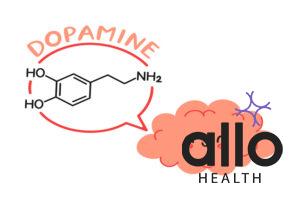What Are The Benefits Of Masturbation?

Allo Health is dedicated to personalized well-being, offering support and trusted information tailored to individual health goals. The platform emphasizes human-generated content, led by a distinguished medical team of experts, including physicians and sexual health specialists. Their commitment to credibility involves rigorous fact-checking, authoritative research, and continuous updates to ensure accurate, up-to-date information. Allo Health's unique approach goes beyond conventional platforms, providing expert-led insights and a continuous commitment to excellence, with user feedback playing a crucial role in shaping the platform's authoritative voice.

A Psychotherapist with Clinical specialization, working for over seven years now. Areas of specialization range from Anxiety-related disorders, Mood-related disorders, Personality disorders, Sexual dysfunctions & other mental health issues.
Why This Was Upated?
Our experts continually monitor the health and wellness space, and we update our articles when new information became available.
Updated on 25 June, 2024
- Article was updated as part of our commitment to diversity, equity, and inclusion.

"The following blog article provides general information and insights on various topics. However, it is important to note that the information presented is not intended as professional advice in any specific field or area. The content of this blog is for general educational and informational purposes only.
Book consultation
The content should not be interpreted as endorsement, recommendation, or guarantee of any product, service, or information mentioned. Readers are solely responsible for the decisions and actions they take based on the information provided in this blog. It is essential to exercise individual judgment, critical thinking, and personal responsibility when applying or implementing any information or suggestions discussed in the blog."
Masturbation is the act of self-pleasuring, typically through touching or rubbing one’s own genitals (genital stimulation). It is a common and completely normal behavior that most people engage in at some point in their lives. While it is often seen as a taboo topic, there are numerous benefits to masturbation that make it worth discussing and embracing.
Masturbation is considered to be one of the safest forms of sex – if done alone or with a partner(s). Despite the negative connotations around it – especially among women – it is
commonly practised. Masturbating has a significant effect on your sex life – physically, emotionally, and mentally.
Benefits Of Masturbation
Improving Sexual Health
- It allows individuals to become more familiar with their own bodies and their own sexual desires, which can lead to a better understanding of what they want and need in a sexual partner.
- This self-exploration can also help to reduce the risk of sexually transmitted infections (STIs) by providing a safe outlet for sexual release.
Mental Health Benefits
- It has been shown to provide stress relief, increase relaxation, and improve sleep.
- Engaging in self-pleasure can release endorphins, which are chemicals that act as natural painkillers and mood elevators.
- It can also provide a sense of accomplishment and boost self-esteem.
Contraception’s Benefits
It is not a reliable method on its own, but it can be used in conjunction with other forms of birth control to further reduce the risk of unintended pregnancy.
Safety Benefits
- Another benefit of masturbation is that it is completely safe and carries no risk of unwanted side effects.
- It is a natural and private way to explore one’s own sexuality without the need for a partner or any external substances.
Despite the many benefits of masturbation, it is still often seen as taboo and is not openly discussed. This can lead to feelings of shame or guilt for those who engage in the behavior. However, masturbation is a normal and healthy part of life. It is nothing to be ashamed of and can bring numerous physical and mental health benefits.
Reduces Anxiety Levels
- Many people turn to masturbation as a way to cope with anxiety or to relax after a long day.
- While there is no scientific evidence to suggest that masturbation directly causes a decrease in anxiety levels, it is possible that the pleasure and relaxation associated with the act may help to temporarily reduce feelings of anxiety.
- Orgasm, in particular, has been shown to have a range of physical and emotional benefits, including the release of endorphins and oxytocin, which can help to reduce stress and promote feelings of well-being.
Masturbation should not be viewed as a replacement for seeking professional help for anxiety or other mental health concerns. However, for those who are comfortable with the practice and find it pleasurable, it may be a useful tool for managing stress and anxiety in a healthy and positive way.
While there is no direct evidence to suggest that masturbation can reduce anxiety levels, the pleasure and relaxation associated with the act may provide temporary relief from feelings of anxiety. As always, if you are experiencing significant levels of anxiety or other mental health concerns, it is important to seek professional help.
Improves Period Cramps
- Period cramps, also known as dysmenorrhea, can be a major source of discomfort for many people who menstruate.
- These cramps are caused by uterine contractions during menstruation, and they can range from mild to severe.
- While there is no surefire way to eliminate period cramps, masturbation may help ease the cramps to an extent.
- This is because masturbation releases endorphins, which are natural painkillers that can help reduce cramping. In addition, orgasm can lead to the release of oxytocin, a hormone that can also help to reduce pain.
Improves Pelvic Floor Muscle Strength
- Pelvic floor muscles play a vital role in supporting the pelvic organs and contributing to overall sexual function.
- Strengthening these muscles can have numerous health benefits, including improved bladder control, enhanced sexual pleasure, and reduced risk of uterine prolapse.
- Masturbation is a natural and effective way to strengthen the pelvic floor muscles, as well as improve sexual satisfaction and self-awareness.
- Pelvic floor muscle exercises, also known as Kegels, can be performed anytime and anywhere.
- To do a Kegel exercise, simply contract the muscles you would use to stop the flow of urine. Hold for a few seconds, then release. It is important to relax the muscles fully after each contraction. Aim for three sets of 10 repetitions per day.
Improves sleep

- While masturbation can have some benefits for sleep, it is not a substitute for good sleep hygiene and should not be the sole focus of efforts to improve sleep.
- Masturbation can help to release built-up sexual tension and built-up stress, which can make it easier to relax and fall asleep.
- Orgasm also releases endorphins, which can help to reduce stress and promote feelings of relaxation and thus, improve sleep quality.
- In addition to the direct effects on sleep, masturbation can also improve sleep indirectly by providing a healthy outlet for sexual desires. This can help to prevent sexual frustration, which can interfere with sleep.
- Additionally, it is important to practice good sleep hygiene. Good sleep hygiene includes habits like establishing a consistent sleep schedule, creating a relaxing bedtime routine, and creating a comfortable and conducive sleep environment.
It is also important to note that while masturbation can be a normal and healthy part of a person’s sex life, it is not necessary for good sleep or overall health. It is important to do what feels comfortable and enjoyable for an individual, and to prioritize good sleep hygiene over any specific activity.
Improves Heart Health
- Masturbation can help you relax, reduce stress, and improve your overall sense of well-being. It has been suggested that masturbation may have benefits for heart health.
- A study found that men who masturbated more frequently had a lower risk of developing heart disease. This may be because masturbation can help increase blood flow and heart rate. Thus, promoting healthy circulation and reducing the risk of cardiovascular disease and stroke.
- While masturbation may have potential benefits for heart health, it is not a substitute for other healthy lifestyle habits such as regular exercise, a balanced diet, and not smoking. Incorporating masturbation into a healthy lifestyle can be a useful tool for maintaining good heart health.
Masturbation And Hormones
- As mentioned earlier, masturbation is also a common way for people to relieve sexual tension and stress.
- Many people believe that masturbation can have various health benefits, including reducing the risk of prostate cancer, improving sleep, and reducing the risk of depression.
- Hormones play a significant role in the human body’s sexual function and can be affected by masturbation.
- It is important to note that there is no scientific evidence to suggest that masturbation has any negative effects on hormone levels. Some people may experience temporary changes in hormone levels after masturbating, but these changes are usually not significant and do not have any long-term effects on the body.
Oxytocin
- Oxytocin is a hormone that is produced in the brain and plays a role in social bonding, sexual reproduction, and childbirth.
- It is sometimes referred to as the “love hormone” because of its role in promoting feelings of love, trust, and attachment.
- There is some evidence to suggest that oxytocin may play a role in the pleasure and bonding that can occur during masturbation.
- Oxytocin levels in the body are known to increase during sexual activity, including masturbation, and some research has found that oxytocin may be involved in the release of pleasure-inducing chemicals in the brain.
- It is important to note, however, that the link between oxytocin and masturbation is not fully understood and more research is needed to fully understand the relationship between the two.
Masturbation And Neurotransmitters

Dopamine
- Dopamine is a neurotransmitter that is involved in many functions in the brain, including motivation, pleasure, and reward.
- It is released in response to pleasurable experiences, such as eating a delicious meal or having an orgasm.
- Masturbation is a normal and healthy sexual behavior that can release dopamine in the brain, leading to feelings of pleasure and satisfaction.
- Research has shown that dopamine levels in the brain are increased during masturbation and other sexual activities.
- This surge in dopamine can lead to feelings of pleasure and reward, and can even contribute to addiction in some individuals.
- However, while masturbation can be enjoyable and provide temporary dopamine boosts, it should not be relied upon as the sole source of pleasure or happiness. A healthy and balanced lifestyle, including a varied diet, exercise, and social connections, is important for overall well-being.
Myths About Masturbation
- Decreased Sexual Performance: One common myth is that frequent masturbation can lead to decreased sexual performance. However, there is no evidence to support this claim. In fact, regular masturbation can help individuals become more attuned to their own bodies, potentially leading to improved sexual experiences with partners.
- Health Risks: Another misconception is that masturbation can lead to various health risks. In reality, when practiced safely and in moderation, masturbation is a normal and healthy part of human sexuality. It does not lead to physical harm or negative health consequences.
- Loss of Vitality: Some cultures and beliefs suggest that frequent masturbation can lead to a loss of vitality or energy. However, there is no scientific basis for this claim. Masturbation is a natural and safe way to explore one’s own sexuality.
- Addictive Behavior: While compulsive or excessive masturbation can be a concern, it does not mean that all masturbation is addictive. Like any behavior, moderation is key. Masturbation in a healthy and balanced manner is not indicative of addiction.
- Negative Effects on Relationships: There’s a misconception that masturbation can negatively impact relationships. In truth, open communication about individual needs and desires, including solo sexual activities, can actually strengthen partnerships by fostering trust and understanding.
- Impact on Fertility: Some believe that frequent masturbation can lead to reduced fertility. However, for individuals trying to conceive, regular ejaculation can actually improve sperm quality by preventing the accumulation of older, less motile sperm.
- Only for the Young: Another myth is that masturbation is primarily for young individuals. In reality, people of all ages engage in this form of self-exploration and self-pleasuring as a natural and healthy aspect of human sexuality.
Key Takeaways:
- Masturbation is a safe and normal form of self sexual stimulation, offering benefits such as improved sexual and mental health, as well as contraception when used with other birth control methods.
- It provides a private and secure way to explore one’s own sexuality without the need for a partner or external aids.
- Masturbation releases endorphins, acting as natural painkillers and mood elevators, leading to reduced stress, promote a sense of relaxation, and better sleep.
- While not a replacement for seeking professional help for anxiety or mental health concerns, it can be a healthy tool for managing stress and anxiety.
- Masturbation may help alleviate period cramps by releasing natural painkillers that reduce cramping.
- It strengthens pelvic floor muscles, contributing to improved bladder control and enhanced sexual pleasure. While it can complement efforts to improve sleep, maintaining good sleep hygiene practices is crucial.
- Additionally, it may have potential benefits for heart health and hormone levels. Dopamine and oxytocin, associated with pleasure and bonding, are released during masturbation.
- However, a balanced lifestyle with a varied diet, exercise, and social connections remains crucial for overall well-being.
Frequently Asked Questions
Q: What is compulsive masturbation?
A: Compulsive masturbation, also known as hypersexuality or sexual addiction, is a condition characterized by an overwhelming and uncontrollable urge to engage in masturbation, often to the detriment of one’s daily life, responsibilities, and relationships. It can be a symptom of an underlying mental health or behavioral disorder, and may require professional intervention and treatment.
Q: Can masturbation help with vaginal dryness?
A: Yes, masturbation can help with vaginal dryness as it promotes increased blood flow to the vaginal area and stimulates natural lubrication production, which can alleviate dryness and discomfort. Additionally, using a water-based lubricant during masturbation can further enhance comfort and moisture levels.
Q: What are the disadvantages of masturbation?
A: Excessive masturbation can lead to feelings of guilt and shame, potentially causing emotional distress. In severe cases, it may contribute to sex addiction, impacting daily functioning and relationships.











































